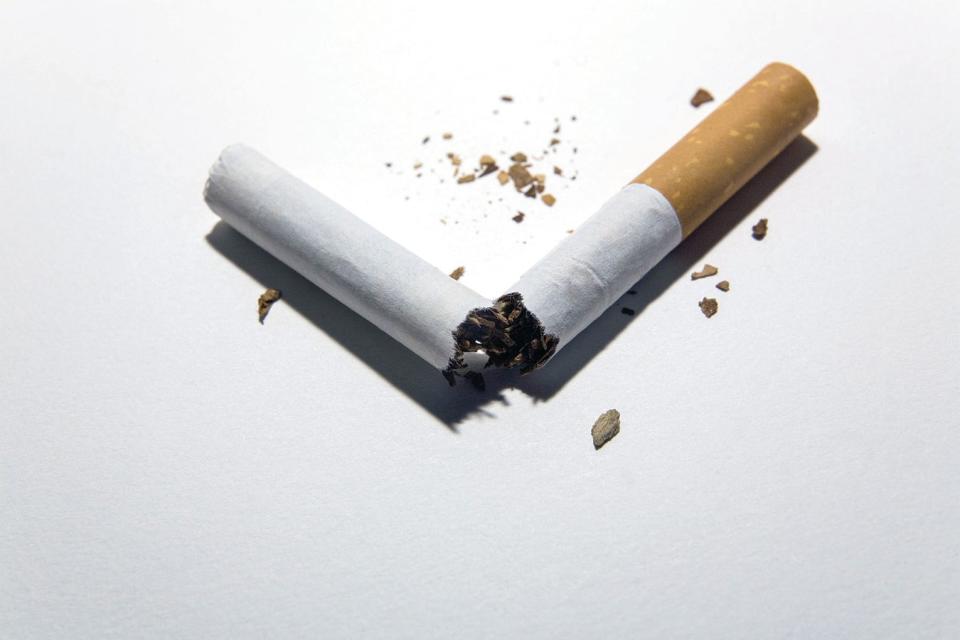Kick the tobacco habit for good with support from Great American Smokeout
The Great American Smokeout is observed on the third Thursday of November each year. In 2023, it will take place on Nov. 16, providing a platform for individuals, communities, and organizations to come together in the fight against tobacco addiction.
Smoking harms nearly every organ of the body, causing many diseases and affecting the health of smokers in general. Quitting smoking has immediate as well as long-term benefits for you and your loved ones
My personal experience with my mother’s smoking and her ultimate passing from Coronary Obstructive Pulmonary Disease (COPD) certainly prompts a profound interest is focusing on this issue.

Some basic information on prevalence and disparities
According to the National Institutes for Health (NIH) In 2021, an estimated 46 million U.S. adults (18.7%) reported currently using any tobacco product, including cigarettes (11.5%), e-cigarettes, cigars (3.5%), smokeless tobacco (2.1%), and pipes (including hookah)* (0.9%).
About 34 million American adults still smoke cigarettes, and smoking remains the single largest preventable cause of death and illness in the world. Over 16 million people live with at least one disease caused by smoking, and 58 million nonsmoking Americans are exposed to secondhand smoke. Smoking causes an estimated 480,000 deaths every year, or about 1 in 5 deaths.
Some groups smoke more heavily or at higher rates and suffer disproportionately from smoking-related cancer and other diseases. These populations tend to be those who experience inequities in multiple areas of their lives, including those at lower socioeconomic levels, those without college degrees, American Indians/Alaska natives, African American/Black communities, LGBTQ communities, those in the military, those with behavioral health conditions, and others.
Some of the Health Benefits of Quitting
Within minutes of smoking your last cigarette, your body begins to recover. Some of the overall benefits follow in a time sequence and are as follows:
20 minutes after quitting — Your heart rate and blood pressure drop
A few days after quitting — The carbon monoxide level in your blood drops to normal.
2 weeks to 3 months after quitting — Your circulation improves and your lung function increases.
1 to 12 months after quitting — Coughing and shortness of breath decrease. Tiny hair-like structures (called cilia) that move mucus out of the lungs start to regain normal function, increasing their ability to handle mucus, clean the lungs, and reduce the risk of infection.
1 to 2 years after quitting — Your risk of heart attack drops dramatically.
5 to 10 years after quitting — Your risk of cancers of the mouth, throat, and voice box (larynx) is cut in half. Your stroke risk decreases.
10 years after quitting — Your risk of lung cancer is about half that of a person who is still smoking (after 10 to 15 years). Your risk of cancer of the bladder, esophagus, and kidney decreases.
15 years after quitting — Your risk of coronary heart disease is close to that of a non-smoker.These are just a few of the health benefits of quitting smoking for good.
Other more immediate benefits of quitting
Kicking the tobacco habit offers some other rewards that you’ll notice right away and some that will show up over time.
Right away you’ll save the money you spent on tobacco. And here are just a few other benefits you may notice:
Food tastes better.
Your sense of smell returns to normal.
Your breath, hair, and clothes smell better.
Your teeth and fingernails stop yellowing.
Ordinary activities (for example, climbing stairs or light housework) leave you less out of breath.
You can be in smoke-free buildings without having to go outside to smoke
Start with day one
You don’t have to stop smoking in one day. Start with day one. On Nov. 16, join thousands of people across the country and start your quit smoking (and other tobacco use) journey starting by challenging yourself to give up cigarettes for 24 hours.
The first step can be the start of a healthier you and the potential to improve your quality of life. Assistance is available through the links at the end of this column.
Thanks to the American Cancer Society and the Centers for Disease Control and Prevention for much of the content provided here.
Additional information/resources
Check out the following resource from the Centers for Disease Control & Prevention on The Great American Smokeout at cdc.gov/tobacco/features/great-american-smokeout
More complete basic information on smoking and tobacco use (including the effects of second-hand smoke, electronic cigarettes and other tobacco products use) can be found at cdc.gov/tobacco/basic_information
For help with quitting smoking, visit the National Cancer Institute’s (NCI) smoking cessation website at smokefree.gov
Assistance with smoking cessation is available through Tobacco Free Florida attobaccofreeflorida.com

Mark Mahoney has been a Registered Dietitian/Nutritionist for over 35 years and completed graduate studies in Public Health at Columbia University. He can be reached at marqos69@hotmail.com.
This article originally appeared on Tallahassee Democrat: Great American Smokeout offers support for kicking tobacco habit

